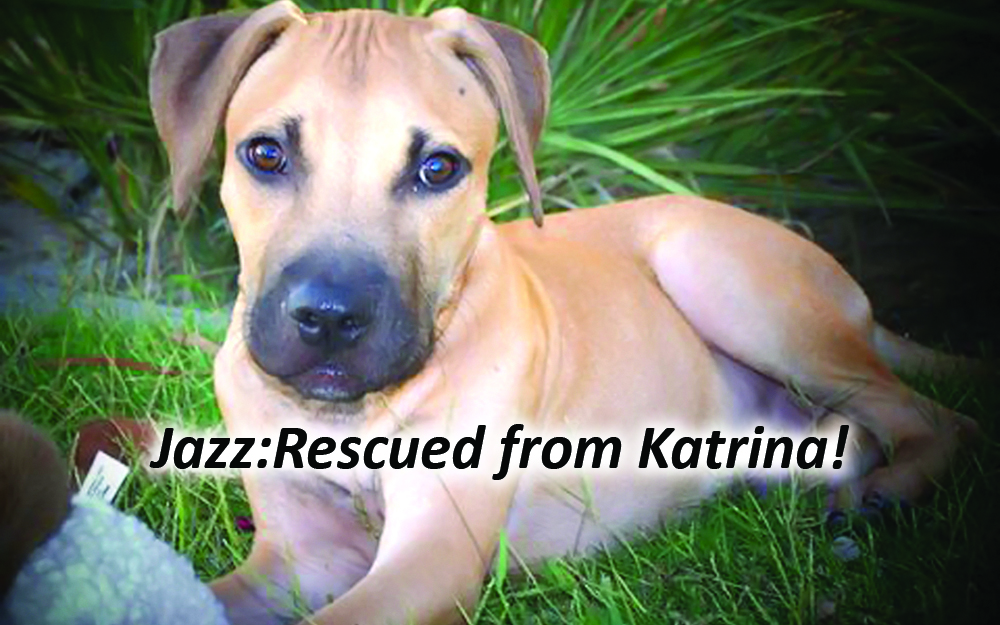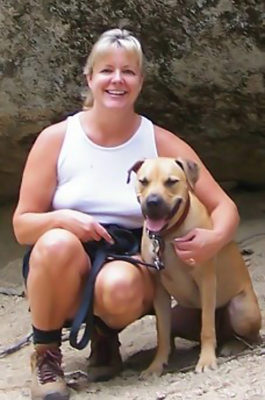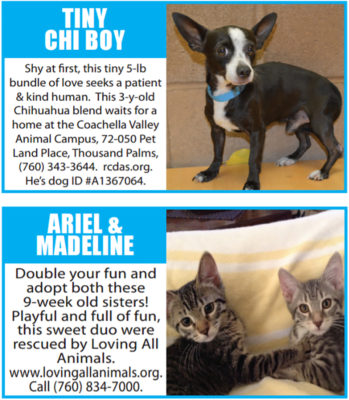
BY JANET McAFEE
It was August, 2005, when the juggernaut of Hurricane Katrina taught our country hard lessons about disaster relief for people and their companion animals. Some people chose to remain behind and risk their lives when emergency workers told them they could not bring their four-legged family members. Of the 100,000 people who refused to evacuate, 44% stayed behind because of their pets. We will never know the exact number of humans who perished because they remained behind with service animals and the household pets that loved and trusted them.
I will never forget the image of a young boy screaming in grief when he was not allowed to bring his beloved dog onto a boat evacuating him from the rising flood waters. Scenes of abandoned and starving animals on balconies and rooftops broke the hearts of animal lovers across the country. An estimated 250,000 cats and dogs perished or were displaced.
In the weeks that followed, organizations converged on the Gulf Coast for the largest animal rescue operation in our nation’s history. In 2006, under pressure from animal lovers around the country Congress passed the Pets Evacuation and Transportation Standards Act, directing FEMA to consider the essential needs of household pets along with their humans in all future disaster relief efforts. “Not Without My Dog” became the rallying cry that created this major policy shift.
Some animals were reunited with their owners. Others belonged to people who perished. One group of animals flew into the Palm Springs Airport where they were rescued by the old Save A Pet shelter in Desert Hot Springs. Thom Daves, former Save A Pet director, recalls, “We took in 66 dogs, 10 cats and 2 geckos, a group in danger of being ‘destroyed’. A few were returned to the Gulf Coast when their owners were later located from a computer tracking system. The public outpouring to help our Katrina animals was amazing.”
 Knowing my friends Jeannie and Terry were looking to adopt, I told them about the Katrina dogs at Save A Pet. Jeannie recalls, “I selected a 4-month old pup from the Katrina group. I took him to meet Terry, who waited in the car because he was sad seeing all the animals in kennels. When the dog licked off the tears running down Terry’s cheeks, it was all over – we had to make him part of our family. Knowing he came from New Orleans, we named him Jazz. I have always loved animals, and always thought it was good for people to rescue animals, but until I was personally part of rescuing Jazz, I had never experienced the deep emotional connection I now have for those in need of rescue.”
Knowing my friends Jeannie and Terry were looking to adopt, I told them about the Katrina dogs at Save A Pet. Jeannie recalls, “I selected a 4-month old pup from the Katrina group. I took him to meet Terry, who waited in the car because he was sad seeing all the animals in kennels. When the dog licked off the tears running down Terry’s cheeks, it was all over – we had to make him part of our family. Knowing he came from New Orleans, we named him Jazz. I have always loved animals, and always thought it was good for people to rescue animals, but until I was personally part of rescuing Jazz, I had never experienced the deep emotional connection I now have for those in need of rescue.”
During Jazz’s veterinary exam, the vet surmised the puncture wounds on his body indicated he was used as bait for dog fighting. This tragic speculation was supported when it was discovered Jazz was fearful of other dogs. Ironically, Hurricane Katrina may have saved Jazz from a torturous life in this vicious and illegal practice.
Jazz is now 12 years old. He remains full of love for his humans and wants nothing more than being by their side. His favorite hobby is swimming. He has an amazing ability to dive into the deep end of the swimming pool to retrieve a ball from the bottom, and swim back up and do it over and over again. Jeannie states, “The unconditional love from Jazz when he greets me every day is the greatest gift I receive from him. He is a Lab/Pitbull mix. I’ve owned Pitbull dogs before, and they are the best companion dogs I’ve ever had.”
 Jazz and the other Katrina dogs taught us a valuable lesson. Future disaster relief efforts, in order to save pets and humans, will combine the efforts of animal welfare organizations and government agencies, working together for people and their pets.
Jazz and the other Katrina dogs taught us a valuable lesson. Future disaster relief efforts, in order to save pets and humans, will combine the efforts of animal welfare organizations and government agencies, working together for people and their pets.
Every shelter animal may not have Jazz’s dramatic history. However, you create your own story of love and redemption when you adopt one. To locate rescue cats and dogs go to www.petfinder.com. For a list of Coachella Valley shelters and rescue groups, contact Loving All Animals at (760) 834-7000 or www.lovingallanimals.org. Jmcafee7@verizon.net










































